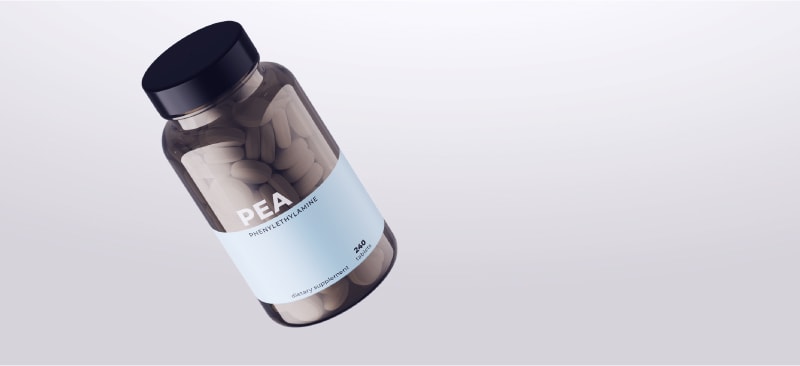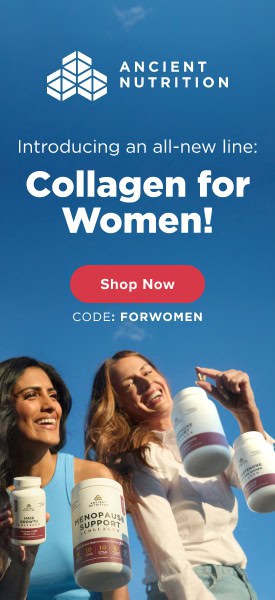This Dr. Axe content is medically reviewed or fact checked to ensure factually accurate information.
With strict editorial sourcing guidelines, we only link to academic research institutions, reputable media sites and, when research is available, medically peer-reviewed studies. Note that the numbers in parentheses (1, 2, etc.) are clickable links to these studies.
The information in our articles is NOT intended to replace a one-on-one relationship with a qualified health care professional and is not intended as medical advice.
This article is based on scientific evidence, written by experts and fact checked by our trained editorial staff. Note that the numbers in parentheses (1, 2, etc.) are clickable links to medically peer-reviewed studies.
Our team includes licensed nutritionists and dietitians, certified health education specialists, as well as certified strength and conditioning specialists, personal trainers and corrective exercise specialists. Our team aims to be not only thorough with its research, but also objective and unbiased.
The information in our articles is NOT intended to replace a one-on-one relationship with a qualified health care professional and is not intended as medical advice.
Phenylethylamine: The Little-Known Supplement that Supports Brain Health
March 10, 2020

Looking for a supplement that might help you concentrate better and curb symptoms associated with burnout and fatigue? Then consider trying phenylethylamine, a molecule found in many trendy “nootropic” supplements that are taken to beat brain fog and lack of motivation.
What does phenylethylamine do to the body? It functions similarly as some mood-enhancing neurotransmitters, such as serotonin and dopamine, while also boosting their effects.
Based on recent research, it seems to defend against depression, poor attention span and even weight gain, especially when coupled with other lifestyle changes and treatments.
What Is Phenylethylamine?
Phenylethylamine — also sometimes called PEA, phenethylamine HCL or beta phenylethylamine — is an organic compound that’s found in the human body and also taken by mouth for several purposes.
It’s classified as a natural monoamine alkaloid and trace amine. It’s found in low quantities compared to other amino acids.
Phenylethylamine acts as a central nervous system stimulant and has the important role of helping the body create certain chemicals that play a role in mood stabilization. In fact, chemically it works similarly to the drug amphetamine (or Adderall, used to treat attention deficit hyperactivity disorder, narcolepsy and obesity), which is why taking too much is a bad idea.
Research tells us that people who have low levels of this chemical may be prone to experiencing depression, poor attention span and other psychiatric conditions.
What foods is phenylethylamine found in?
PEA is synthesized by fungi and bacteria and can be found in small quantities in certain food products, especially those that have been fermented. Foods that naturally contain this molecule include:
- chocolate/cocoa beans
- natto
- eggs
- various plants in the family called Leguminosae, which is composed of trees, shrubs, vines, herbs (such as clover), nuts/seeds like almonds, flaxseeds and walnuts, and legumes/beans (such as soybeans, lentils, chickpeas and green peas)
- blue green algae
- wine
Chocolate is considered one of the best dietary sources, and levels increase in cocoa beans when they are fermented and roasted. However, studies have found that eating chocolate doesn’t lead to an increase in PEA levels in the nervous system, since it is metabolized rapidly before reaching the brain.
Phenylethylamine can also be produced from dietary L-phenylalanine, an amino acid and component of dietary protein. Based on studies, it’s estimated that the average diet provides around four grams of phenylethylamine due to consumption of protein foods.
The best way to get L-phenylalanine is to consume eggs, chicken, turkey, fish, beef and dairy products.
Related: Happy Food: Top 14 Foods That Make You Happy
Health Benefits
What do studies tell us about phenylethylamine’s effects on the brain? PEA has been shown (mostly in animal studies) to activate dopamine transporters and certain chloride channels that affect moods and behaviors.
People who don’t make enough phenethylamine naturally may be helped by taking phenethylamine as a supplement.
There’s some evidence this molecule can improve mental capabilities in people with symptoms and conditions including:
- ADHD
- Certain types of depression
- Addictions/dependence on substances
- PTSD
- Fatigue and low motivation
- Brain fog
- Poor concentration, attention and focus
- Low libido
Here’s more about phenethylamine’s benefits and how it works:
1. May Enhance Focus and Attention
How exactly does it improve cognitive performance? Phenethylamine is considered a trace amine and is found in the nervous system, where it plays a role in brain circuits that release “feel good” hormones.
It seems to improve motivation, problem-solving and task completion by increasing the effects of other neurotransmitters and chemicals in the brain, including serotonin, dopamine, norepinephrine and acetylcholine.
Researchers believe that when it comes to improving mental health, PEA can be a safe alternative to drugs, such as amphetamine or methylphenidate, which are capable of causing unwanted side effects.
Both unusually low and high concentrations of PEA in the brain are thought to be associated with various psychological disorders, so it’s important to get the dose right in order to avoid worsening some conditions.
2. May Improve Moods and Reduce Depression
According to one article published in Webmedcentral, PEA has been described as “an immediate shot of happiness, pleasure, and emotional wellbeing” and means of “feeling happier, more alive and having a better attitude.”
Certain studies, including those conducted on animals, suggest that depression is associated with lower levels of phenethylamine and that a deficit of PEA may be one cause of depression.
One study found that supplementing with 10–60 milligrams of phenethylamine daily along with the antidepressant drug called selegiline (Anipryl, Eldepryl) helped relieve depression in 60 percent of participants. An impressive 86 percent experienced relief from depression symptoms for up to 50 weeks.
3. Can Support Athletic Performance
There’s evidence that phenylethylamine may have similar effects as natural endorphins and serve as a possible factor in the antidepressant actions of exercise.
It seems to be involved in the “runner’s high” (described as a state of calm euphoria) that is experienced during and after physical exercise. It can improve motivation to exercise and boost energy levels due to its uplifting, stimulating effects, and this may contribute to health benefits such as reduced inflammation and better quality of life into older age.
Interestingly, some studies suggest that it may also support weight loss by leading to reduced fluid retention and less need for water.
4. Has Antimicrobial Effects
This molecule is capable of acting as natural antimicrobial against certain pathogenic strains of bacteria, including Escherichia coli (E.coli), which is why it’s sometimes used to preserve meats and other foods.
Uses and Dosage
This molecule is available over the counter and does not require a prescription. While results from vary from person to person, some report that supplementing can make an immediate and noticeable impact on their energy levels and mood.
While small amounts of PEA are found in some foods, taking PEA supplements is the best way to increase levels. Even so, some experts think that supplementing may not have significant effects, due to how this compound is rapidly broken down into inactive components.
PEA supplements come in several forms, including powders and capsules. Some PEA supplements contain hydrochloride (HCL), which is added to make it easier for the body to digest PEA.
How should you take phenylethylamine? As a dietary supplement or powder, a typical dosage is about 100 milligrams to to 500 milligrams daily, equivalent to about 1/8 teaspoon of powder.
Phenylethylamine dosage recommendations depend on your current health, body size and medical history. Start with a low dose, and work your way up to a higher dose if you require more to feel any effects.
Decrease your dosage if you experience side effects like accelerated heart rate, anxiety and nervousness.
In powder form it can be mixed with water, juice or another fluid. It has a bitter flavor, so some people like to disguise it in a smoothie or another sweetened beverage.
It’s recommended that you take it with a meal to decrease chance of side effects.
While the names PEA powder and pea protein powder might sound similar, these are not the same thing but do have similar effects. Pea protein is a plant-based protein powder that is made from green peas.
It can be a good source of amino acids for plant-based eaters, but it’s not an alternative to taking phenylethylamine supplements.
Risks and Side Effects
Can phenylethylamine get you high? While it won’t get you high, taking too much can cause side effects similar to those caused by the drug amphetamine, especially if taken with medications that alter neurotransmitter levels.
Side effects can potentially include a rapid heart rate, heart palpitations, anxiety/nervousness, shaking, shivering, agitation, muscle stiffness and confusion.
High levels in the body can also cause too much serotonin to accumulate in the brain, which has a number of negative effects. While more research is needed on the topic, long-term high exposure to this molecule may be a neurological risk factor for pathological consequences, since this can interfere with normal cognitive function.
Will phenylethylamine show up on a drug test? While it’s unlikely to when taken in moderate doses, in high doses it may cause a positive test result for amphetamine/methamphetamine.
This is yet another reason not to over-supplement with it.
Drug Interactions
There are a number of drug interactions to be aware of if you plan to take phenylethylamine supplements. While eating moderate amounts of phenylethylamine foods is likely safe, taking concentrated doses in supplement form can lead to unwanted interactions and symptoms.
You should avoid using this chemical in supplement form if any these situations apply to you:
- You are pregnant or breastfeeding.
- You have a psychiatric condition, such as schizophrenia, bipolar mania and agitated depression. Supplementing may worsen symptoms and interact with effects of medications.
- You’ve recently has surgery (within the past two weeks).
- You have a disorder like phenylketonuria (PKU) that cause the body to store excess phenylalanine.
- You take any mood-altering medication, including Desipramine (Norpramin), dextromethorphan (Robitussin DM, and others), Meperidine (Demerol), Pentazocine (Talwin), Tramadol (Ultram), and medications for depression (antidepressants), such as fluoxetine (Prozac), paroxetine (Paxil), sertraline (Zoloft), amitriptyline (Elavil), clomipramine (Anafranil), imipramine (Tofranil) and others.
Be cautious before beginning to take any new supplements, and talk with your health provider if you’re unsure if it’s safe for you.
Conclusion
- Phenylethylamine (also called PEA or phenylethylamine HCL) is a molecule found in the human body, some foods in small amounts and also nootropic supplements.
- It’s believed to work by increasing the effects of other neurotransmitters and chemicals in the brain, including serotonin, dopamine, norepinephrine and acetylcholine. Benefits can include increasing your energy levels, focus/attention span, motivation and ability to exercise.
- It can be taken in powder or capsule form and should be started at low doses of about 100 milligrams per day.
- Finding the right phenylethylamine dosage is important because taking too much may cause similar side effects to taking too much amphedmine. Side effects may include nervousness/anxiety, shaking, racing heart and confusion.









